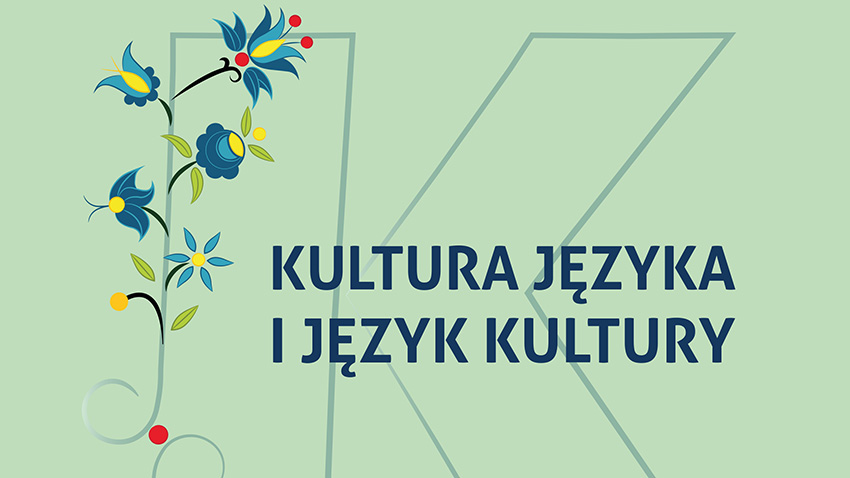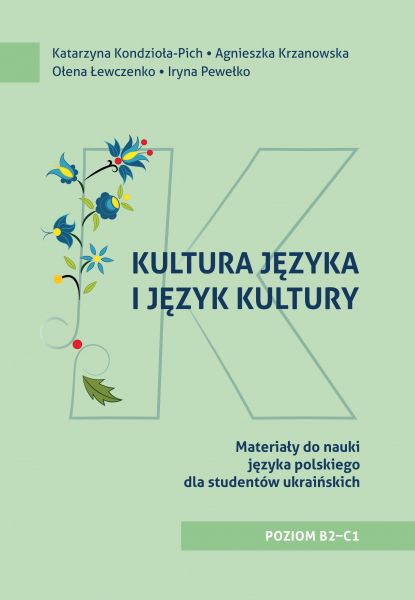The Publishing House of the University of Szczecin has published a book with an ambitious goal of being both a help and an inspiration.
Developing competences
Professor Olena Levchenko, Head of the Department of Applied Linguistics (AL) at the Institute of Computer Science and Information Technologies (ICIT), Lviv Polytechnic, and Polish language teacher Iryna Pavelko, together with their colleagues from Szczecin, Dr. Katarzyna Kondzioła-Pich (project manager) and Dr. Agnieszka Krzanowska, have written an outstanding book. Its full title is «Culture of Language and Language of Culture. Materials for learning Polish for Ukrainian students. Levels B2-C1».
This publication was funded by the Polish National Agency for Academic Exchange (Narodowa Agencja Wymiany Akademickiej, NAWA). It was implemented within the framework of the project «Developing Cultural Competences in Teaching Polish at Ukrainian Universities» and the program «Promotion of the Polish Language».
The book is addressed to Ukrainian students who want to improve their knowledge of the Polish language and cultural competences, i.e. awareness of the peculiarities of Poland that will help them navigate this country and communicate with its citizens. The work of the four scholars covers various aspects and contexts of Polish culture, including linguistic, spiritual, regional, culinary, etc.
The first section of the book is about language politeness, the ability to give compliments, comfort, sympathise, criticise and refuse delicately, taking into account social relations, typical communication situations (including on the Internet), traditions and customs. The second section deals with social varieties of the Polish language, peculiarities of communication among young people, verbal correctness and femininities. The third section is dedicated to culinary culture, regional and national traditions of cooking and eating. The last chapter is about phraseology that reflects the subtle shades of national culture and worldview.
The co-authors of this interesting and informative book explained that «this is not a typical textbook, but rather an auxiliary training manual» that «can be of help and inspiration». That is why it is available for download on the website of the University of Szczecin Publishing House.
Culture matters
We wanted to show the national and cultural specifics of both languages, as Ukrainian students are not well versed in our phraseology. Globalisation processes lead to the loss of national identity.
I tried to show our and Polish phraseological systems and the contexts of the use of phraseological units. I used this opportunity to make students more familiar with Ukrainian phraseology, and to make sure that, for example, even negative emotions can be expressed without using vulgarities and swear words, which, unfortunately, are so common today, particularly in online texts. The culture of language matters.
As part of the project, we held a seminar with invited Polish language teachers to test our textbook and discuss the latest technologies that can be used in teaching a foreign language. Polish scholars Katarzyna Kondzioła-Pich and Agnieszka Krzanowska delivered lectures for teachers and students, and our Department’s teachers shared their technological experience – the use of corpora for language teaching and research, in particular the use of parallel corpora in teaching translation theory and practice.
About our identity as well
– Is the book more didactic or informative?
– We tried to strike a balance so that students could learn more about Poland and improve their grammar at the same time. I hope that the book will do a good deed: by learning about Polish traditions and comparing them with Ukrainian ones, students will reflect on the richness and diversity of our cultural heritage. Thus, our book is also about our identity: about what we should know and who we are; it is about our history, folklore and literature, our ancient traditions and our endless phraseological reserves.
– So your book can give an impetus: when students read about Polish, they will make comparisons with Ukrainian?
– Yes, an impetus to compare, and, I hope, above all, to understand that we are representatives of European civilisation and culture. Since our textbook is available on the Internet, it will also be interesting for teachers of technical specialities who cooperate with Poles and want to improve their Polish language skills and learn more about Poland. They will get more familiar with the contemporary Polish cultural context.

